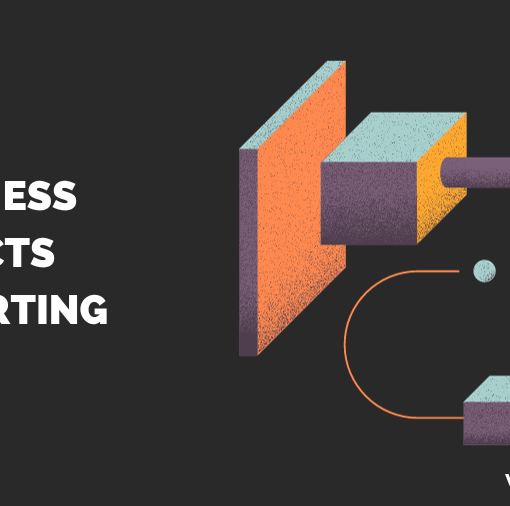
How does SAP help businesses and Benefits of SAP ERP
Presently, Enterprise Resource Planning is an enormous and emerging business. It acts as the brain of the organization’s technology system which combines every feature of a business, including product development, manufacturing, marketing, and sales. With the help of these area’s companies can gain visibility, enhance productivity and operational efficiency, decreases costs and increases competitiveness. This growing business influences many recipients such as the implementation workers who receive an excellent salary package, client organizations that obtain many benefits of software integration and the end users who benefit from simple user interfaces. There are many popular ERP software such as PeopleSoft, Oracle, HP Microsoft, and SAP. Out of these ERP software’s SAP has become the choice of many industries and it is expected that this trend will going to be continue in the upcoming years. SAP ERP software helps the organization to integrate and simplify their business processes such as finances, HR and other operations. (How does SAP help businesses)
There are other reasons as well which show that SAP is different than other ERP software system. Let’s have a look at them:
1. SAP is Suitable for any Size of Business, i.e., from Small to Large Size Companies: Well, other ERP systems are used in the particular size of the companies, but SAP ERP is utilized in almost all dimensions of the businesses. SAP provides a complete solution with a direct implementation process. Also, transitions are easy with the growth and development of the company. SAP also provides numerous cloud solutions, and it assimilates with complimentary services, like Google and PayPal. This is not common in the world of ERP systems. SAP provides a lot of flexibility for growth, and due to this, small businesses achieve significant benefits from it. It also offers functions and competencies required by the world’s largest companies. Nearly 80% of fortune 500 companies are using SAP nowadays, comprising Pfizer, Phillip Morris, and Johnson & Johnson, etc.(How does SAP help businesses)
2. SAP is a Global Solution: SAP AG is a reputed company in Germany, founded in 1972 which is mainly developing ERP software that provides same integration solution to companies situated in various areas all around the world. Nowadays, more than 50 countries has been accepted SAP ERP software solution, and there is no doubt that SAP ERP software solution is continuously gaining approval in maximum countries.(How does SAP help businesses)
3. SAP does not Provide Any Redundant Functionality: Well, the staff of any company needs training and time to learn any new ERP system, so that they know how to use it. If the ERP system is short and straightforward, the employees can learn it quickly and in less time. Few ERP systems like Oracle provide numerous functions for maximum businesses, out of which most of the functions are unnecessary which makes learning complex and more challenging. But SAP ERP provides the function according to the business requirements. SAP keeps all the functions in a simplified way so that the user can learn it easily and does not get confused.
4. SAP is Perfect For any Business: SAP works with almost all types of industries, but the other ERP systems cannot work with every kind of business. Most of the companies that are applying a new ERP possibly not know the exact functions or modules they require. SAP contains an extensive collection of a custom fit without paying for customization. Businesses may also achieve advantages from SAP’s integration, thus when one module is modified, the other modules get updated instantly.(How does SAP help businesses)
5. SAP Provides Shorter Implementation Time and Fastest Financial Payback: SAP is the second most expensive ERP system after Oracle. As compared to other ERP system, it gives most rapid financial reimbursement which is an advantage for businesses utilizing SAP. Simultaneously, in SAP the implementation time is shorter than its equivalent which also enables faster success.(How does SAP help businesses)
6. As Compared to other ERP Systems SAP Needs Fewer Customization: SAP has various innovative functionalities compared to other ERP system. Thus, it requires minimum customization which can slow down the implementation time. However, it is observed that SAP offers a lot of customizable solutions which will be suitable for almost every type of business requirements. Presently, SAP has very high charges as compared to other ERP systems. The other sellers such as Oracle are continuously upgrading and changing their software; thus SAP has to work very hard to stay ahead in the competitive environment.(How does SAP help businesses)
7. Constant Development in SAP: SAP is continuously providing new versions of ERP systems. Initially, SAP R/2 was substituted by SAP R/3, which was then replaced by SAP ERP. SAP ERP platforms also keep on changing. SAP Web Application server replaced SAP Basis, and then SAP Web application is replaced by Net Weaver. To keep up to date with the modifications in the industry, SAP is continuously releasing upgrades.(How does SAP help businesses)
8. Industry Best Practices: SAP ERP is executed as per the industry best practices and case studies; this confirms that organizations stay equivalent to the opposing organizations in the industry. The utilization of industry best practices for reference affirms that there is decrease in cost, risk as well as in time. Cost reduction is accomplished due to the increase in the utilization of resources. Risk is essential in implementing any new software solution. If the SAP ERP is applied as per the industry best practices, it helps to moderate risk due to the removal of the ambiguity of the final result.
9. Presence of Clearly Defined Roadmaps: The SAP ERP implementation contains roadmaps which are precisely defined. These roadmaps act as a reference point at the time of SAP ERP implementation. The roadmap is segregated into various phases such as the project preparation phase, the business planning phase, the understanding phase, the concluding preparation phase and the go live and support phase. Each of these phases is further divided into more comprehensive step by step guide. Along with these roadmaps, SAP ERP implementation has an implementation assistant who helps to execute the implementation approach. The implementation assistant is created by using plenty of tools and templates which confirms the implementation of SAP ERP simple as much as possible.
10. Industry Specific: Well, various industries have their specific SAP ERP solution. The solution is designed in such a way that it fulfills the needs of an organization. For example, ERP material management module is suitable for motor vehicle manufacturing industry but it is not fit for the accounting industry. The different modules are adjusted to capture all the primary business procedures in various sectors.
11. Scalability of Software Solutions: Scalability feature is a prerequisite in software solutions to achieve success. SAP stands for Systems, Applications, and Products in data processing. SAP ERP solutions are primarily designed to enhance with the business, which means that as the size of the organization rises their capacity also increases. Well, this is an essential feature which inhibits the software solution from being static because organization practices both internal and external modifications.
12. Low-risk Method: The implementation of SAP ERP follows a low-risk methodology which guarantees conformance to necessities of adjusting figures. This is mainly useful for greatly structured industries, for example, the financial services industry and the pharmaceutical industry. The financial services industry needs particular threshold fluidity, least capital, levels of gearing and financial reporting. The SAP ERP implementation approach guarantees conformance to international financial reporting principles and the United States Sarbanes Oxley Act reliant on the company’s location. This method reduces the risk of facing legal fines and experienced audit outlook due to anomalies. The low risk method is essential in SAP ERP as it makes SAP precious for the huge organizations registered in the market.
13. Developments in SAP across Industry limitations: The enhancements in SAP ERP system are recognized across the industry limitation which means it is possible that the provided improvement may not applicable to more than one sector. For instance, an enhancement would be particular to the Human Capital Management module. Suppose the enhancement enables a new ability in e-recruiting called automatic ineligibility. This enhancement would apply to all the industries because recruitment is an essential function in all organizations, as the people can run an organization.
14. Ecosystem Benefit: SAP ERP claims for ecosystem advantage. The ecosystem benefits are related to the customer; in this case, it is the client organizations who want to implement SAP ERP. With the help of this advantage, the clients, partners and individuals can come together with a standard solution for a particular problem and discuss different kinds of stuffs related to SAP ERP. This is an additional advantage which exceeds the traditional customer care services provided by regular ERP solution vendors. Using this advantage, SAP ERP experts can recognize the persistent and emerging business requirements.
How does SAP support business processes?
SAP (Systems, Applications, and Products in Data Processing) is a leading enterprise resource planning (ERP) software that supports and optimizes various business processes across different departments in an organization. Here’s how SAP supports business processes:
- Integration: SAP integrates different business functions and departments into a unified system, allowing seamless data flow and real-time information sharing. This integration reduces data duplication, improves accuracy, and enhances overall efficiency.
- Centralized Data Management: SAP provides a centralized database where all business data is stored. This centralized approach ensures data consistency, improves data access, and facilitates better decision-making.
- Streamlined Operations: SAP automates and streamlines business processes, such as procurement, sales, inventory management, production planning, finance, and HR, leading to increased productivity and reduced manual effort.
- Real-time Reporting and Analytics: SAP offers robust reporting and analytics capabilities, enabling users to generate real-time reports, dashboards, and insights. These analytics empower businesses to make data-driven decisions and identify areas for improvement.
- Customer Relationship Management (CRM): SAP’s CRM module helps manage customer interactions, sales processes, and marketing campaigns, fostering better customer relationships and improved customer service.
- Supply Chain Management (SCM): The SCM module in SAP optimizes the supply chain by ensuring efficient inventory management, demand forecasting, and logistics planning, leading to reduced costs and better fulfillment of customer orders.
- Human Resources Management (HRM): SAP’s HRM module manages employee data, payroll, performance, and talent acquisition, streamlining HR processes and improving workforce management.
- Financial Management: SAP’s financial module handles accounting, financial reporting, budgeting, and asset management, enabling better financial control and compliance.
- Project Management: SAP supports project planning, execution, and tracking, helping organizations manage complex projects efficiently and meet project deadlines.
- Compliance and Governance: SAP helps businesses adhere to regulatory requirements and industry standards by incorporating compliance features and audit trails into its processes.
- Mobility and Cloud Solutions: SAP offers mobile applications and cloud-based solutions, allowing users to access critical business data and processes from anywhere, anytime, on any device.
- Continuous Improvement: With SAP’s capability to collect and analyze operational data, organizations can identify bottlenecks and inefficiencies, paving the way for continuous process improvement.
By leveraging SAP’s comprehensive suite of modules and functionalities, businesses can achieve enhanced operational efficiency, improved decision-making, and a competitive advantage in today’s fast-paced business environment. However, it’s essential to implement SAP effectively and ensure proper training and change management to realize the full potential of the system.
Is SAP good for small business
Although SAP is most well-known among major corporations, the company’s customers are overwhelmingly small and mid-sized. In fact, they have an ERP package specifically designed for the needs of SMEs. SAP isn’t merely a shorter version of the company’s larger corporate software. It’s been specifically built to offer the features and capabilities that SMEs need, without the added complexity. SAP is a cost-effective solution for small and mid-sized organizations with a well-defined total cost of ownership. While the expenses of your implementation project will vary depending on a number of factors, you should budget between one and two percent of your annual income.
Conclusion
SAP is the most demanding ERP system nowadays as it has several benefits over other ERP systems. SAP ERP software supports organization to integrate and simplify their various business processes such as finances, HR, manufacturing, and other operations. SAP is a worldwide solution and suitable for all type of businesses.
Got any questions for us? Please mention it in the comments section and we will return it to you. Also at eLearning Solutions we offer a self-paced online training program for SAP. Skyrocket your career by learning from the best!
You can also visit our website for more engaging and informative articles.





